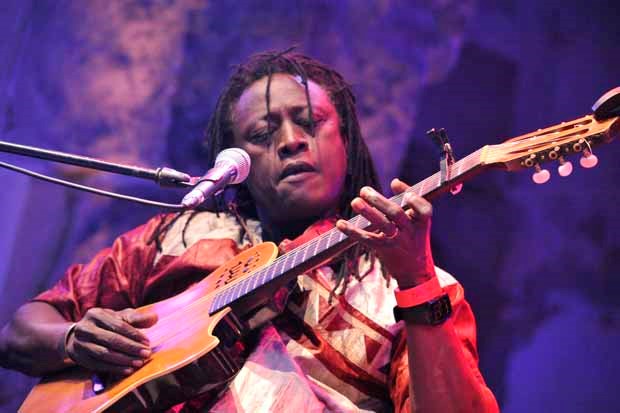Habib Koité, Cap Global Roots, Kay Meek Centre, Friday, Feb. 7, 2014 at 8 p.m. Tickets $39/$36/$25. For more information visit capilanou.ca/blueshorefinancialcentre/Habib-Koite/.
Singer/songwriter Habib Koité returns to the North Shore this week for a show at West Vancouver’s Kay Meek Centre as part of Capilano University’s Global Roots Series.
Koité grew up in Mali, West Africa, a historical centre and primary cultural source for blues music. He was surrounded by an extended family of Khassonké ‘griots,’ a line of troubadours who combined the social functions of storytellers and praise singers. Early on Koité accompanied his mother, herself a griotte, when she sang at weddings and funerals and his grandfather played the ngoni, a string instrument, which evolved into the banjo.
Studying under Kalilou Traoré at the Institut national des arts (L’INA) in Bamako, Mali, Koité brought styles such as blues and flamenco as well as Western classical and jazz into his own music. After graduating, he continued to teach guitar and started his own band Bamada. He first visited Canada in 1994 and has been back many times since. For an excellent biography, translated from French, visit rfimusic.com/artist/world-music/habib-koite/biography.
Koité’s latest album, Soô (which translates to Home in English) is set for release on Feb. 25, featuring guest appearances from Toumani Diabate and Bassekou Kouyate. The 11-track album, with songs in the Malinke, Bambara and Dogon languages, is a major overhaul in terms of personnel and execution. Recorded at home in Bamako with a new group of musicians, Koité has dropped a drum kit in favour of the calabash and djembe for percussion. He’s also added a banjo to the mix for the first time bringing modern and traditional sounds together in new ways.



